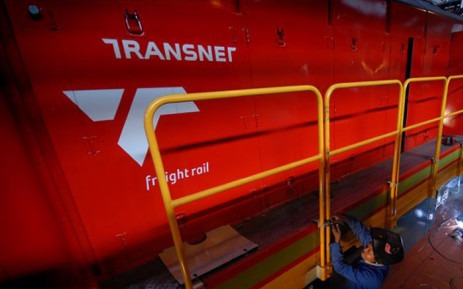South Africa’s Minister of Finance, Enoch Godongwana, recently delivered the Medium-Term Budget Policy Statement (MTBPS) in Parliament, bringing to light the financial challenges faced by the state-owned entity, Transnet. In his address, Minister Godongwana emphasized the grave consequences of Transnet’s poor rail performance, which he believes poses a substantial threat to the nation’s economy. Furthermore, he expressed his concerns regarding the inefficiencies plaguing South Africa’s ports. This article delves into the details presented in the MTBPS, shedding light on the issues surrounding Transnet and its impact on the country’s economic landscape.
- Transnet’s Rail Inefficiencies and Their Economic Toll:
The heart of Minister Godongwana’s concerns lies in Transnet’s rail inefficiencies, which have reportedly cost the nation over R400 billion. These inefficiencies not only undermine Transnet’s own financial stability but also have significant repercussions for South Africa’s already struggling economy. The root causes of Transnet’s operational failures are multifaceted, with increased theft and vandalism being key factors. Reduced locomotive availability and the poor condition of infrastructure, resulting from underinvestment, have further exacerbated the issue.
In essence, Transnet’s rail system is failing to meet the demands of the South African economy. The consequences of this failure are far-reaching, leading to a deteriorating logistics system, especially in the rail and port sectors. This, in turn, imposes a heavy cost on the nation, with rail underperformance estimated to have led to losses amounting to 5% of the Gross Domestic Product (GDP) in 2022. These losses are particularly evident in the minerals sector, where the financial toll is estimated to be around R50 billion.
- Inefficiency in South Africa’s Ports:
Minister Godongwana did not limit his critique solely to Transnet’s rail issues but also addressed inefficiencies within the country’s ports. South Africa’s ports are currently characterized as inefficient and uncompetitive. These conditions not only hinder trade and economic growth but also reflect poorly on the nation’s reputation in the global market.
Efficient ports play a crucial role in facilitating trade and commerce. Any disruptions or inefficiencies in port operations can lead to delays, increased costs, and a decline in the attractiveness of South Africa as a destination for trade and investment. As the Minister highlighted, addressing the challenges within the port sector is vital for the nation’s economic well-being.
- National Treasury’s Actions:
Recognizing the severity of the situation, Minister Godongwana stated that the National Treasury is actively engaged in efforts to address Transnet’s financial woes. This includes working closely with Transnet and the Department of Public Enterprises to ensure that the entity can meet its immediate debt obligations, which currently stand at over R130 billion.
The collaboration between the National Treasury, Transnet, and the Department of Public Enterprises underscores the government’s commitment to finding a solution to the crisis. The aim is not only to stabilize Transnet’s finances but also to revitalize the country’s rail and port infrastructure to foster economic growth.
- The Broader Economic Implications:
The issues plaguing Transnet and South Africa’s ports are not isolated concerns. They have a direct and profound impact on the nation’s economy as a whole. A well-functioning logistics and transportation system is essential for trade, investment, and economic growth. When these systems falter, the entire economy suffers.
It is imperative to consider the ripple effects of Transnet’s troubles. Beyond the immediate financial strain on the entity itself, the country’s economic performance is hindered, and potential investors may be deterred. The revenue losses and inefficiencies within the rail and port sectors are obstacles that must be overcome for South Africa to achieve sustainable economic development.
Minister Enoch Godongwana’s presentation of the Medium-Term Budget Policy Statement (MTBPS) in South Africa’s Parliament highlighted the critical financial challenges facing state-owned entity Transnet. The inefficiencies in Transnet’s rail system, as well as the inefficiencies within the nation’s ports, have a significant and wide-reaching impact on South Africa’s economy. The cost of Transnet’s rail inefficiencies alone is estimated at over R400 billion, and these issues contribute to a deteriorating logistics system, resulting in losses of up to 5% of GDP in 2022.
Efficient and competitive rail and port operations are vital for facilitating trade, investment, and economic growth. The challenges within these sectors are not just financial problems for Transnet; they are challenges that South Africa as a whole must address to achieve sustained economic development.
The National Treasury is actively involved in finding solutions to stabilize Transnet’s finances and revitalize the nation’s rail and port infrastructure. These efforts are crucial for South Africa to maintain its position in the global market and attract further investment.
In conclusion, Minister Godongwana’s concerns over Transnet’s performance and the inefficiencies in South Africa’s ports underscore the importance of addressing these issues promptly and comprehensively. The economic well-being and future prospects of South Africa are at stake, making it imperative for all stakeholders to work collaboratively to find solutions.









